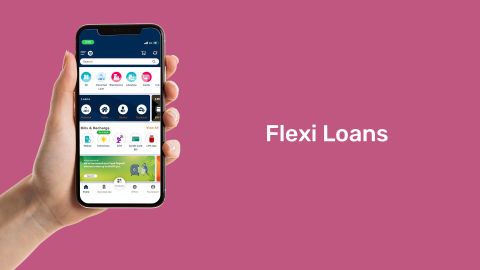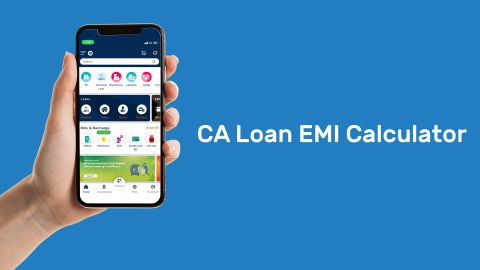With the rollout of GST, the government requires even Small and medium enterprises (SMEs) to maintain financial uniformity. This makes them look to chartered accountants (CAs) to provide an efficient and robust accounting system. A system that will help the enterprises comply with GST laws. To maintain such an accounting system, having accounting software becomes imperative.
A business accounting software organises an enterprise’s financial data. The software helps prepare and present accounts and financial statements according to issued standards. Accounting professionals can use it for systematic measurement of the financial data of a business. You can also use it for verification, interpretation, summation, and classification of financial data.
CAs must have good accounting software to generate tax invoices and create and manage GST levied at different levels (CGST, SGST & IGST).
Additional Read: Impact of GST on small and medium businesses
Benefits of accounting software
Accounting software offers numerous benefits that streamline and enhance business financial management. Key advantages include:
1. Real-time financial overview: Modern accounting software provides a comprehensive view of a company's financial health by integrating journal entries and automated subledger updates into the general ledger. This real-time visibility supports informed decision-making.
2. Efficient accounts management: The software simplifies accounts payable (AP) and accounts receivable (AR) processes, reducing record redundancy and improving budgeting and forecasting. It ensures accurate tracking of expenses and seamless integration with banking systems, enhancing audit accuracy.
3. Cash and asset management: Accurate cash management features automate reconciliation with bank statements and enable better cash forecasting. For asset management, the software tracks the full financial cycle of assets, including acquisition, depreciation, and retirement, ensuring precise financial statements.
4. Risk management and compliance: Built-in security features and audit controls protect against fraud and unauthorised access, aiding compliance with regulations such as Sarbanes-Oxley (SOX). This provides a secure and reliable data source.
5. Enhanced reporting and analytics: With embedded reporting and analytics capabilities, accounting software generates real-time dashboards and measures critical financial KPIs, helping leaders analyse and optimise financial performance.
Overall, accounting software significantly improves financial accuracy, efficiency, and strategic planning.
What are the features of accounting software?
When selecting accounting software, it's important to understand its key features to ensure it meets your business needs. Most modern accounting software platforms use double-entry accounting to maintain accuracy and include essential functions such as accounts receivable, accounts payable, banking, and reporting. Here are some core features to look for:
1. Accounts receivable: The software should efficiently handle billing, track customer debts, and manage payments. It should allow for invoice processing, enabling you to create, print, and email invoices while storing customer details and standard pricing.
2. Automatic invoicing: To prevent delays in revenue, the software should support automatic invoicing. This feature ensures invoices are sent out promptly and includes automated statements and reminders for overdue payments, acting as a virtual collection department.
3. Accounts payable: Look for software that manages outgoing payments, tracks expenses, and helps maintain supplier relationships.
4. Banking integration: The ability to integrate with your bank accounts for reconciliation and automatic transaction updates is essential for accurate financial tracking.
5. Reporting: Comprehensive reporting tools that offer insights into financial performance, trends, and compliance are crucial for informed decision-making.
Additional features like inventory management, project management, time tracking, and payroll may be available in higher-tier plans or as add-ons.
Financing your software requirements
Bajaj Finserv Flexi Term Loan for chartered accountants helps practising CAs to manage their finances. It is an industry-first facility allowing you to make multiple withdrawals per your financing need. And you can repay as and when you have extra funds.
A Flexi Term Loan helps you expand your working capital and your firm’s client base. With a Flexi Loan, manage expenses and costs like hiring contractual or specialised personnel and training existing ones. You can also use the loan to pay rent and subscription fees. The loan can cover all other unforeseen expenses as well.
Here are five recommended accounting software packages, along with their pricing and features.
1. Tally.ERP 9
Tally is a market leader in business accounting software. It helps firms prepare and manage journals, ledgers, debit and credit notes, and trial balances. The software also helps manage profit and loss statements, balance sheets, cash flow, and more.
Features:
- HR and payroll management
- Multiple company support
- Financial management
- Inventory management
- Invoicing and billing
- Taxation
2. ProfitBooks
ProfitBooks is a popular cloud accounting software that lets you create invoices, track expenses and manage inventory. It helps you save time and manage your finances more efficiently. Since ProfitBooks is a cloud-based solution, you get remote access to information, thus ensuring mobility.
Features:
- GST invoicing with payment gateways integration
- Expense management
- Inventory management
- Warehouse management
- Multi-currency support
3. Zoho Books
Zoho Books is user-friendly online accounting software designed for small and medium enterprises. Its key features include automatic bank feeds and payment notifications, online collaboration with customers, and time tracking. The software is also useful for inventory management, invoice tracking, reconciliation, and automated workflows. It helps businesses manage all their accounting operations effectively on a single platform.
Features:
- Files GST returns
- Create estimates and invoices
- Track bills and expenses
- Connect to secure, automatic bank feeds
- Create projects and timesheets
- Create sales orders and purchase orders
4. BUSY
BUSY is an integrated software ideal for the accounting needs of micro, small, and medium businesses. With the software, accounting professionals can manage TDS and TCS compliance. The software helps with managing MIS reports and analysis for businesses. You can also use the software for multi-currency financial accounting, GST invoice creation, and report generation.
Features:
- Inventory management (multi-location)
- Production and bill of material
- Sales and purchase quotations
- Sales and purchase order processing
- Fully user-configurable invoicing
5. Marg
Marg ERP is among the leaders in general accounting software. You can use this software for managing invoices, sales orders, purchase orders, payroll, GST e-return, and more.
The future of accounting software
The future of accounting software is profoundly shaped by advancements in cloud technology and next-generation tools. As organisations face increasing competition and evolving challenges, cloud-based accounting systems are emerging as vital solutions for financial management.
Key trends in the future of accounting software:
1. Cloud integration: Cloud-based accounting software offers comprehensive, integrated solutions that enhance financial management. This shift eliminates the need for extensive hardware investments and provides scalability, enabling organisations to adapt quickly to market changes.
2. Advanced reporting and analytics: Modern systems feature sophisticated reporting tools that offer insights into financial performance, profitability, and revenue through advanced analytics and trend analyses.
3. Next-generation technologies: Incorporation of AI, machine learning, blockchain, and digital assistants in accounting software is becoming standard, driving automation and improving accuracy.
4. Automation: Features like automated account reconciliation and transaction matching streamline processes, speeding up financial closes and reducing human error.
5. Scalability and accessibility: Cloud software supports extreme scalability, allowing for seamless growth across different markets and regions. It also provides remote access from various devices, facilitating work from anywhere.
6. Disaster recovery and compliance: Enhanced security measures and regular data backups in cloud solutions ensure robust disaster recovery and adherence to regulatory compliance.
7. Cost efficiency: The cloud reduces the total cost of ownership by eliminating the need for on-premises infrastructure and maintenance.
Embracing cloud accounting is no longer optional but essential for maintaining a competitive edge in today’s digital economy. It equips businesses with real-time, accurate financial information, crucial for strategic decision-making and operational efficiency.
Features:
- Validates data for internal audit
- Creates GST-compliant invoices in various formats
- Generates reports for analysis and decision-making
- Ensures data security with the management of user access rights
Good accounting software can provide insights into your business and its financial health. The software helps you to make well-informed decisions. With GST requiring periodic filings, every business needs to maintain proper accounts of their sales and purchases. The right software enables efficient and streamlined accounting functions that would thoroughly comply with the GST laws.







